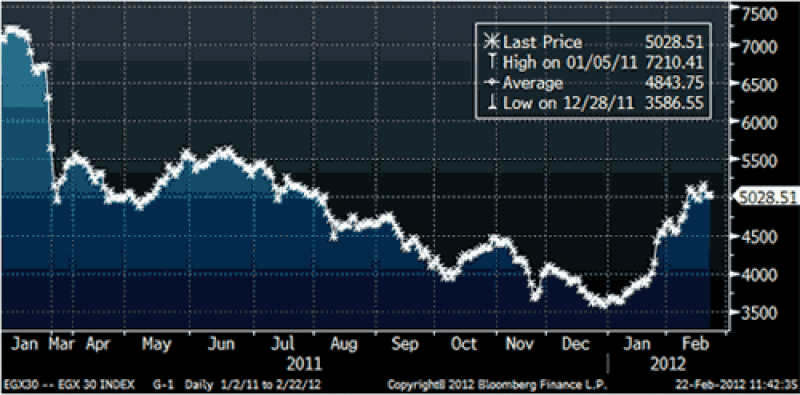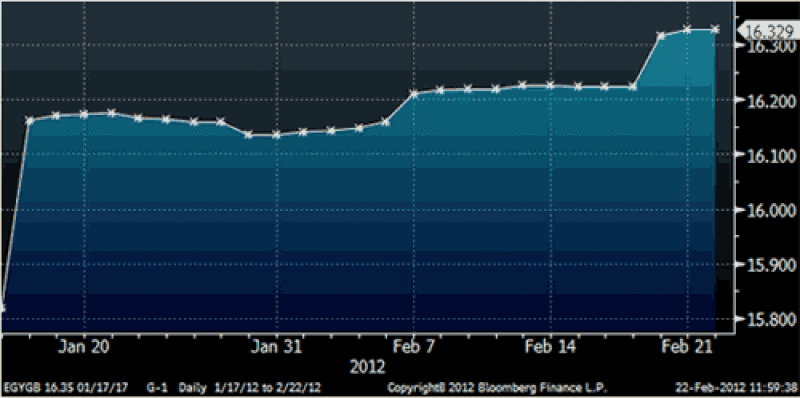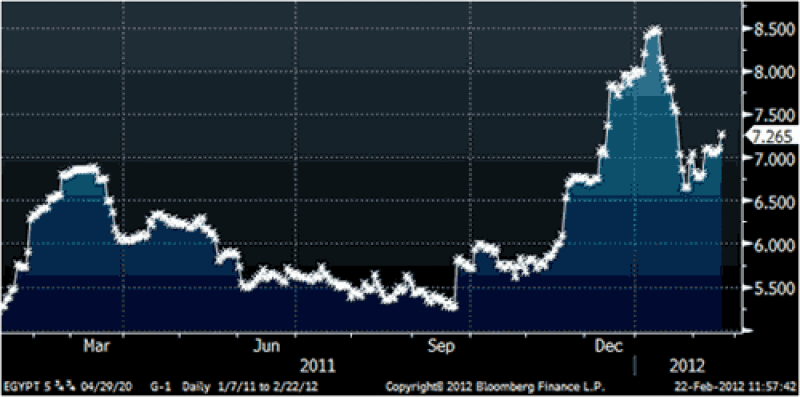A look at the world’s top-performing stock markets this year is a reminder of how well taking risk has paid for the bold lately. There’s Vietnam and Turkey among the top five – but leading the table is Egypt, up 39% since the beginning of January.
Obviously, this hasn’t come close to erasing the losses investors have suffered since Hosni Mubarak was forced out of power back in January 2011, as the chart below makes clear.

But it’s still an impressive turnaround from a country that is struggling to finalise desperately needed loans from the IMF and support from bilateral donors, and exploring every possible route to plug the funding gap while those negotiations drag on. Locals are demanding a 16%+ yield (6% real) to lend to the government over five years (see first chart below) - although the yield on the USD bond due 2020 has ticked down in line with equities this year (see second chart below).


That might suggest that foreigners in search of risk assets are driving the equity rally while locals sit it out but the data doesn’t seem to support that. Foreigners sold a net US$33.55m of equities in January according to the exchange’s monthly report, the third successive month of outflows (although shrinking from US$76.34m in December and US$58.18m in November) .
So why might anyone be moving back into the market? Granted, it seems hard to find much encouraging about Egypt’s situation. But the EGX30 is trading on 7.2 times forecast earnings (vs 17.5 times trailing earnings), according to Bloomberg data. How realistic those forecasts are in the near-term is a good question, but they probably represent a more normal idea of where earnings could be when things stablise than what was achieved in the turbulent past year.
An optimist could also argue that longer-term strategic investors seem to want to stick around. France Telecom said last week that will buy most of the shares it doesn’t own in wireless operator Mobinil.
All that said, this looks like a classic relief rally, driven by sentiment – and sentiment is fragile. So the risk of a severe reversal looks pretty high and given Egypt’s precarious political situation, absolute worst-case scenarios certainly can’t be ruled out. There aren’t many markets with a higher risk profile.
Still, look across the Mediterranean to another deeply distressed economy and perhaps the Egyptian rally doesn’t seem quite so out of place. Stocks in Athens are up a solid 14% and trade on nine times forecast earnings.
And Greece also has funding woes and political uncertainty almost without limit, while social unrest is growing. At best, it may be to condemned years of weak or no growth, while Egypt could conceivably deliver decent performance if it resolves its financing problems, enacts some reforms and manages to keep social and political issues under control.
That will not be easy and Egypt may have even more potential downside than Greece – but it also has more potential upside. Hence investors in Cairo with the appetite for the risk probably have more reason to keep their cool than their counterparts in Athens.
Further reading: